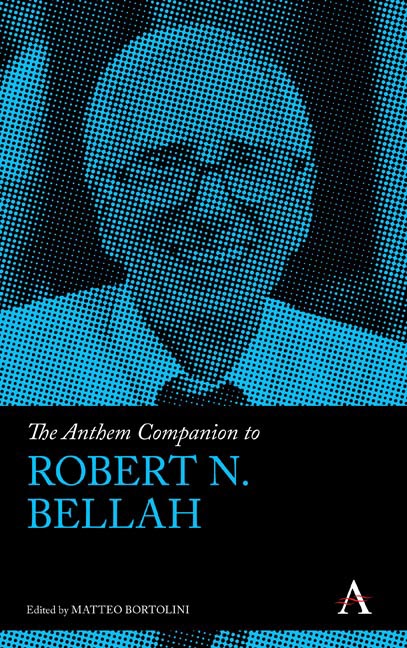Book contents
- Frontmatter
- Contents
- Notes on Contributors
- Introduction: On Being a Scholar and an Intellectual
- Part 1 Major Themes
- Part 2 Yesterday and Today
- Chapter 4 Broken Covenant Redux? Civil Religion in Crisis
- Chapter 5 Robert Bellah's Catholic Imagination
- Chapter 6 Habits of the Heart Revisited: American Individualism before and after the Communitarian Moment
- Part 3 Unexpected Masters
- Index
Chapter 5 - Robert Bellah's Catholic Imagination
from Part 2 - Yesterday and Today
Published online by Cambridge University Press: 06 July 2019
- Frontmatter
- Contents
- Notes on Contributors
- Introduction: On Being a Scholar and an Intellectual
- Part 1 Major Themes
- Part 2 Yesterday and Today
- Chapter 4 Broken Covenant Redux? Civil Religion in Crisis
- Chapter 5 Robert Bellah's Catholic Imagination
- Chapter 6 Habits of the Heart Revisited: American Individualism before and after the Communitarian Moment
- Part 3 Unexpected Masters
- Index
Summary
Robert Bellah became more Catholic as he aged, or perhaps it is more accurate to say he became more Catholic friendly. In an essay “On Being Catholic and American,” Bellah describes the influence of his Catholic (or at least Catholic- raised) coauthors in Habits of the Heart and The Good Society, as well as his recognition that Protestantism needs an analogical, which is to say Catholic, imagination to temper its dialectical edge. And when Bellah talks about Protestantism, he talks about America. The Catholic imagination, Bellah argues, is something America needs.
But what is Catholicism for Bellah? Why did he come to view the Catholic imagination as such a valuable resource? To answer that question, we'll have to examine how Bellah changed his views on Protestantism over time, especially its responsibility for the individualism that Bellah came increasingly to understand as desacralized and atomistic. For Bellah, the Catholic imagination is a powerful foil to the Protestant worldview, partially in the mutually supporting relationship Tracy describes in The Analogical Imagination (1981), and which Bellah cites approvingly, nodding also at Andrew Greeley's adaptation of Tracy's argument in The Catholic Imagination (2000). Protestants emphasize belief statements; Catholics emphasize embodied practices. Protestants emphasize the individual; Catholics emphasize the community. Protestants emphasize the risks of symbols; Catholics emphasize their necessity. Protestants emphasize, via their theology, the real possibility that God is beyond anything we could experience; Catholics emphasize, via the sacraments, the divine's continual immanence. Bellah knows enough to admit that these distinctions don't quite fit. Protestants can feel God acting in this world and in their very lives. Catholics do care about beliefs. Yet whether or not these differences capture every empirical nuance misses the point: for Bellah, the goal of these kinds of comparison is ideal typical rather than taxonomic, and the ideal types are meant to reveal different imaginations, ways of approaching the world through which certain things simply make more sense and matter more than others, a point just as important for Greeley (1989). In that sense, it is obviously true that Catholics and Protestants are at once orthodox and orthoprax, simultaneously believing and practicing. Yet different imaginations give these approaches and actions differing weights.
- Type
- Chapter
- Information
- The Anthem Companion to Robert N. Bellah , pp. 127 - 146Publisher: Anthem PressPrint publication year: 2019



